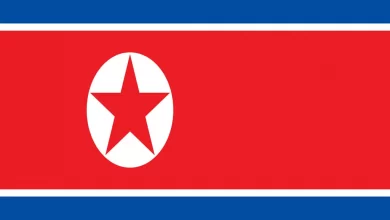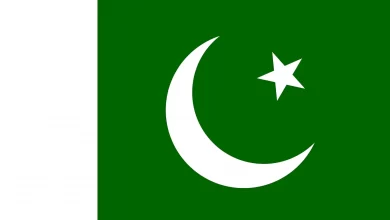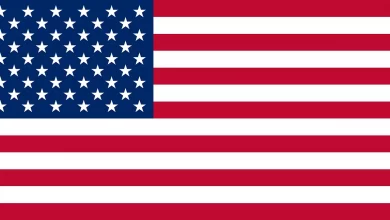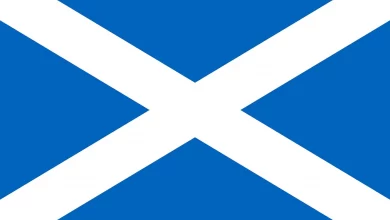Kenya is a country located in East Africa and has a population of over 50 million people. It is one of the most populous countries in Africa. Nairobi is the capital and largest city in Kenya and serves as an important economic and cultural hub for the region. Kenya is known for its stunning landscapes, diverse wildlife, and vibrant culture. The country is home to numerous national parks and reserves, including the famous Masai Mara, which attracts millions of tourists each year to witness the annual wildebeest migration. Despite facing various challenges, such as poverty, corruption, and political instability, Kenya remains a resilient and dynamic country with a promising future.
- Kenya has a rich history, with evidence of early human settlements dating back over 2 million years. The country is also home to numerous archaeological sites, including the ruins of Gedi, an ancient Swahili city.
- Kenya gained independence from British colonial rule in 1963.
- Kenya is located in East Africa, bordered by Tanzania to the south, Uganda to the west, South Sudan to the northwest, Ethiopia to the north, Somalia to the east, and the Indian Ocean to the southeast.
- The capital city of Kenya is Nairobi, which is also the largest city in the country. The population of the capital is about 4.397 million. It is also the best city in the entire African continent.
- Kenya is known for its incredible wildlife, including lions, elephants, giraffes, zebras, and more. The country is home to numerous national parks and reserves, including the famous Masai Mara National Reserve.
- Mount Kenya, located in central Kenya, is the second-highest peak on the African continent, after Mount Kilimanjaro in Tanzania. It is an extinct volcano that is thought to have risen to 6,500 m during its active period (3.1-2.6 million years ago). The current elevation is about 5,199 m(17057 ft).
- The official languages of Kenya are English and Swahili. English was passed down from colonial rule (see British Kenya). Swahili has more speakers than English in Kenya, including second-language speakers.
- Kenya is a multi-ethnic country with over 40 different ethnic groups, each with their own unique languages, cultures, and traditions.
- The Kikuyu people are Kenya’s largest ethnic group. The Luhya, Luo, Kalenjin, Kamba, Kisii, and Meru are some of the other major ethnic groups.
- Kenya has a diverse economy, with agriculture, manufacturing, tourism, and technology being some of the key industries. Kenya is currently ranked 61st among the major economies.
- Kenya is one of the world’s largest tea exporters and is also known for its production of coffee, flowers, and fresh produce.
- Kenya has a rich cultural heritage, with traditional music, dance, and art being an important part of the country’s cultural identity. The country has a strong tradition of music, with popular genres including benga, taarab, and hip hop.
- Kenyan athletes are among the best in the world, particularly in long-distance running. Some of the most famous Kenyan athletes include Eliud Kipchoge, David Rudisha, and Brigid Kosgei.
- Lake Victoria, located on the border of Kenya, Tanzania, and Uganda, is the largest lake in Africa and the second-largest freshwater lake in the world.
- The Great Rift Valley, which runs through Kenya, is a major geological feature and is home to a number of lakes, hot springs, and volcanoes.
- Kenya is located on the equator, which means that the country has a tropical climate with warm temperatures year-round.
- The Maasai people, who are known for their distinctive culture and dress, are one of the most well-known ethnic groups in Kenya.
- Kenya has a diverse range of wildlife, including the “Big Five” (lion, leopard, elephant, buffalo, and rhinoceros), as well as other species such as cheetahs, zebras, giraffes, and hippos.
- The Mombasa-Nairobi Standard Gauge Railway, which opened in 2017, is a modern railway system that connects the Kenyan coast with Nairobi, the capital.
- Kenya is home to some of the world’s most stunning beaches, including Diani Beach, Watamu Beach, and Nyali Beach.
- The national symbol of Kenya Contains 2 lions in gold. Whereas the national animal is the east African lion, and the national flower is the Orchid.
- The Kenyan shilling is the country’s currency, and the economy is the largest in East Africa.
- Kenya is home to over 50 national parks and reserves, including Amboseli National Park, Tsavo National Park, and Samburu National Reserve. This makes the country one of the best destinations for wildlife Safari.
- The Kenya Wildlife Service (KWS) is responsible for managing the country’s national parks and reserves, as well as protecting endangered species such as the black rhinoceros and the Grevy’s zebra.
- The Great Wildebeest Migration, which takes place annually between Kenya’s Masai Mara National Reserve and Tanzania’s Serengeti National Park, is one of the most spectacular wildlife events in the world.
- Kenya is one of the top producers of geothermal energy in the world, with most of its geothermal power coming from the Olkaria Geothermal Field.
- The Kenyan film industry, known as “Riverwood,” produces over 60 films a year and is growing in popularity both locally and internationally.
- The Kenyan flag features black, red, green, and white, representing the people, blood, vegetation, and peace, respectively.
- The Kenyan government is a presidential representative democratic republic, with the President serving as both the head of state and head of government.
- Kenya is home to a number of diverse ecosystems, including the savannah, tropical forests, coastal plains, and arid deserts.
- Some of the most famous Kenyan writers include Ngugi wa Thiong’o, Binyavanga Wainaina, and Yvonne Adhiambo Owuor.
- Kenya has a rich culinary tradition, with popular dishes including nyama choma (grilled meat), ugali (a staple food made from maize flour), and chapati (a type of flatbread).
- The Kenyan coastline is approximately 536 kilometres long and is known for its white sandy beaches, coral reefs, and marine wildlife.
- The Kenyan government is currently working to promote eco-tourism and sustainability, with a focus on reducing plastic waste and protecting the country’s natural resources.
- Kenya has a rapidly growing technology industry, with Nairobi being referred to as the “Silicon Savannah” due to its innovative start-up culture and tech-focused initiatives.
- Kenya has a high level of linguistic diversity, with over 60 different languages spoken across the country.
- The Kenyan education system is based on the British model, with primary education lasting 8 years and secondary education lasts 4 years.
- The Kenyan economy is heavily reliant on agriculture, with tea, coffee, flowers, and fresh produce being some of the country’s top exports. Kenya’s exports for 2021 were $11.66 billion, a 20.19% increase over 2020.
- Kenya has a vibrant fashion industry, with designers such as John Kaveke and Katungulu Mwendwa gaining international recognition for their innovative designs.
- Kenya is home to numerous cultural festivals and events, including the Lamu Cultural Festival, the Mombasa Carnival, and the Nairobi International Book Fair.
Quick Facts about Kenya
- CAPITAL CITY: Nairobi
- POPULATION: 5.3 crores
- POPULATION RANK: 27th
- LARGEST CITY: Nairobi
- OFFICIAL LANGUAGES: English and Swahili
- GDP NOMINAL: 11,034.71 crores USD
- GDP RANK: 61st
- CURRENCY: Kenyan Shilling
- FOUNDED: 12 December 1963
- FATHER OF THE NATION:Jomo Kenyatta
- TOTAL AREA: 582,646 km2
- AREA RANK: 48th worldwide
- CONTINENT: Africa
- AVERAGE LIFE EXPECTANCY: 62.68 years
- ARMY STRENGTH: 50,000
- ARMY RANK: 87th
- LITERACY RATE: 82.62 percent
- PER CAPITA INCOME: 5,130 PPP dollars (2021)






